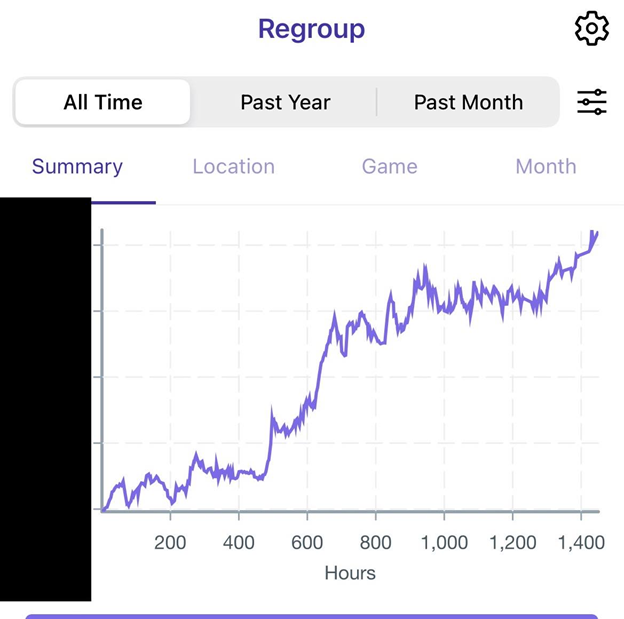What do you really learn in business school?
I went to business school in 2016 in large part because I wanted to improve my emotional intelligence.
Almost right away, I had a formative experience.
Learning via peers
A month into my first semester, I was working on a group project. One of our tasks was to interview employees at a company. I was in charge of coordinating interview logistics.
Our seven-person team of MBA students consisted of four Americans and three internationals. I split our team into smaller interview squads. I explicitly told my teammates that I wanted to include at least one native English speaker on each interview squad—just to make sure that there would be nothing lost in translation.
The interviews went flawlessly. It wasn’t until later, during our structured feedback process – that one of my international teammates told me:
Your comment about native English speakers was hurtful.
I was caught by surprise. But I immediately realized my mistake.
I hadn’t considered how a non-native English speaker might feel upon hearing my statement.
I had been proud of myself for considering potential language barriers. I had been overly thoughtful in one area, and not very thoughtful at all in another.
I was insensitive. I was tactless.
In retrospect, the language element didn’t matter for our success at all. And even if it did, I could’ve been smarter, more subtle about the way I assigned the interview squads.
A truism about business school is that most of your learning comes from the people around you. Through my peers, I experienced hundreds of lessons like the above.
There is something incredibly unique about being in close proximity to 400 ambitious peers for two years.
While we came from different backgrounds and had different goals, we were all about the same age, and we felt like equals.
We were in a safe space—in the temporal, physical, and psychological sense—isolated from the rest of the world. We studied, worked, ate, drank, played, and travelled together.
It felt surreal.
For a fleeting moment in time, we were on the exact same journey. And we were all there to learn from and help one another.
There is something special about the size of the MBA program that I attended. There are only 400 students per year. It’s a number big enough for you to find your tribe, but it is also small enough for you to meet everyone.
400 is a great class size for gossip to spread. And I don’t use the word “gossip” in any pejorative way. We are all social creatures. Gossip is how we learn. It’s how we warn and protect. It can be a great force for good.
The chatter I heard during business school was eye-opening for me. And I’ll share one particularly memorable story.
Learning via gossip
It was my 2nd year of business school—fall 2017. A company had just started sponsoring a slew of student-run events—think free drinks, free food, the whole shebang.
Awesome! … Or so we initially thought.
The problem was that this company was emerging from a major sexual harassment scandal. The CEO founder had just been forced out. And while the company seemed to have atoned for its misdeeds, fall 2017 was the height of the #metoo movement—and this was a very sensitive topic.
Seeing the company’s name plastered all over emails and Facebook invites rubbed some of my classmates the wrong way. The boiling point came when this company sponsored an event ran by our “Women in Management” student club.
After that, the grumbling started to louden.
WTF, they are trying to use our school’s brand to rehabilitate their own!
This issue became the topic du jour for a couple of weeks—in the hallways, on WhatsApp groups, and at parties. Everyone had an opinion, some stronger than others. The two sides essentially boiled down to:
Whatever, let’s just take advantage of the free stuff!
No way! Our brand is worth more than a few beers!
What was especially interesting to me was how hard it was to predict how individuals would feel. There were men and women on both sides. It didn’t matter what industry they came from or where they grew up. There was no pattern as far as I could tell.
Eventually, the drama fizzled out–either the funding ran out, or the semester ended, or something else. My biggest learning came from watching the story unfold.
Prior to business school – lacking the volume of diverse peers, I was more narrow-minded.
Up close and personal, I could see that many of my peers thought very differently from me and from each other. I had close friends, whom I greatly respected, on opposite sides of the debate. This experience was one of many during my MBA program that broadened my perspectives and increased my maturity.
And my learnings were compounded by starting a company during business school.
Learning via starting a company
In my very first blog article from nearly 4 years ago – I talked about all the resources that my school provided that helped me get my last company off the ground.
More recently, I had the chance to look back, and I summarized a few of my bigger mistakes on the business front.
The result was that we pivoted 2x. We almost ran out of money 3x. I had 4 different co-founders depart during 4 years. I hired people too quickly, fired people too slowly. You name it, I did it wrong.
Despite all the mistakes I made, and the stresses we endured, the company is now thriving! Most importantly, while I was the CEO, I experienced a 10x improvement from a communication and emotional maturity perspective.
Here is a concrete example: Honing my negotiating skills with $400,000 and a lawsuit on the line.
One challenge I faced was that unlike in business school, I had few true peers to learn from at the start-up. It was lonely. This was when I first started receiving professional coaching. That has been very helpful for my personal growth, and I will talk about it next time!
This is Part 2 of a 3-part series on communication and emotional maturity. See part 1: The art of non-violent confrontation to read about my early steps in learning to communicate. As well as part 3: What is coaching and how I got into it
I write about personal growth, entrepreneurship, and investing. Currently, I’m building Listening Gym – a peer-to-peer coaching community.



